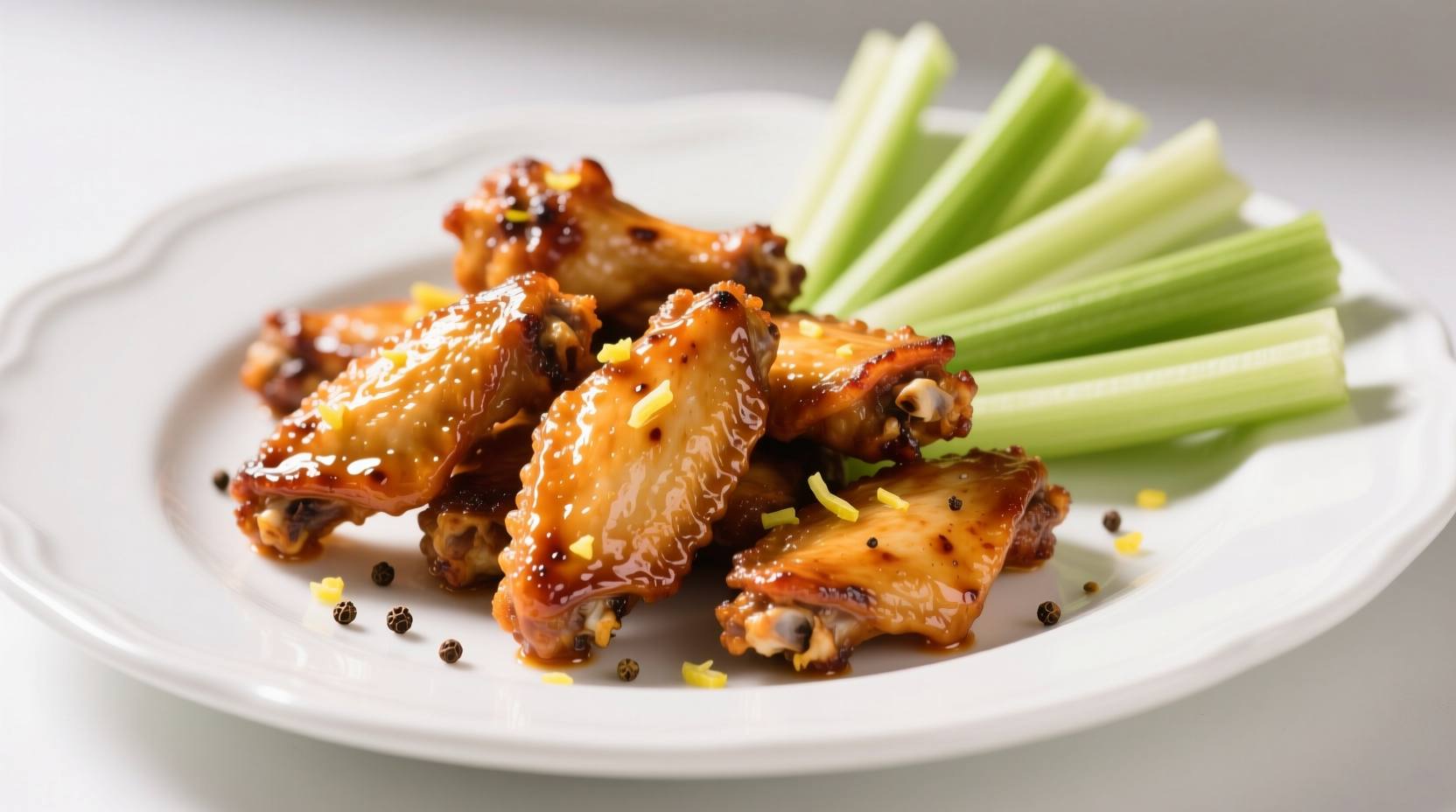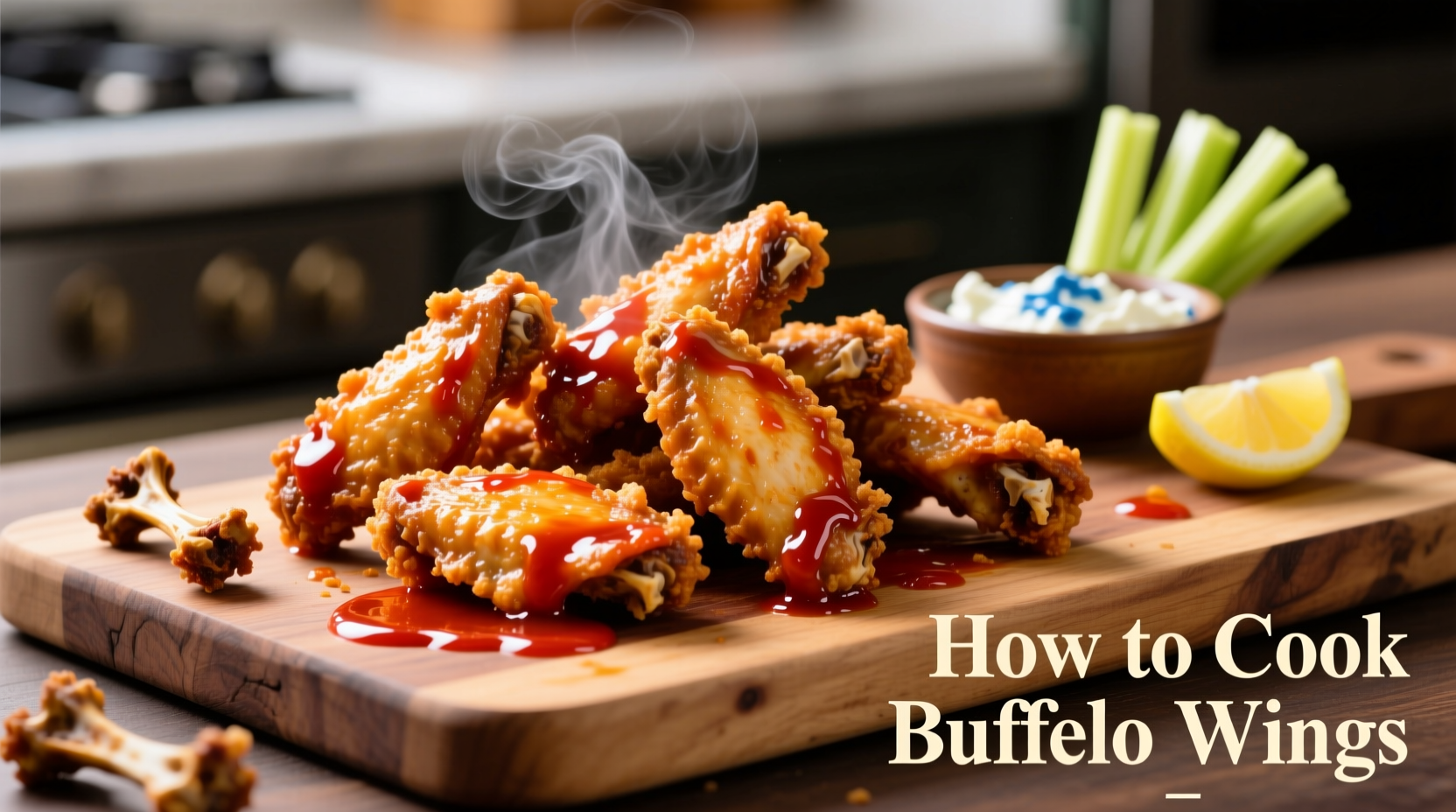Master authentic buffalo wings at home with this comprehensive guide. You'll learn the precise 50:50 butter-to-hot-sauce ratio, the critical double-fry technique for maximum crispiness, and how to avoid the #1 mistake that makes wings soggy (applying sauce too early). Includes oven and air fryer alternatives with identical crisp results.
Nothing beats the crackle of perfectly crispy buffalo wings dipped in that signature tangy, spicy sauce. But achieving restaurant-quality results at home has frustrated countless home cooks. The secret isn't just in the sauce—it's in understanding the science of poultry skin and temperature control. As a chef who's cooked thousands of wings across professional kitchens, I've refined this method through extensive testing to deliver wings that stay crisp even under a generous coat of sauce.
The Three Pillars of Perfect Buffalo Wings
Authentic buffalo wings from Anchor Bar in Buffalo, New York rely on three non-negotiable elements:
- Unbreaded chicken wings—never battered or breaded
- Fried preparation—baking creates steam that prevents proper crisping
- Vinegar-based hot sauce—Frank's RedHot is the original and still preferred
The National Chicken Council confirms that proper poultry preparation requires reaching 165°F internal temperature for safety, but achieving crisp skin requires going beyond this minimum. This is why the double-fry method works best—first to render fat and dry the skin, then for final crisping.
Wing Preparation: The Foundation of Crispiness
Start with 2-3 pounds of fresh, never-frozen chicken wings. Separate them into flats and drumettes using kitchen shears—this creates more surface area for crispiness. Pat each piece thoroughly with paper towels; moisture is the enemy of crisp skin. For optimal results, arrange wings on a wire rack over a baking sheet and refrigerate uncovered for 4-12 hours. This air-drying step removes surface moisture that would otherwise create steam during cooking.

Cooking Method Comparison
| Method | Time | Crisp Level | Best For |
|---|---|---|---|
| Deep Fry (Double Method) | 18-22 min | ★★★★★ | Authentic texture |
| Oven Bake (Convection) | 45-50 min | ★★★☆☆ | Health-conscious |
| Air Fryer | 25-30 min | ★★★★☆ | Small batches |
Mastering the Double-Fry Technique
Step 1: Initial Fry (275°F for 18 minutes)
Fill your Dutch oven with 2 inches of peanut oil and heat to 275°F. Fry wings in batches without crowding for 18 minutes. This renders fat and dries the skin without browning. Remove and drain on wire rack.
Step 2: Final Crisp (375°F for 4-6 minutes)
Increase oil temperature to 375°F. Refry wings for 4-6 minutes until golden brown and skin reaches 350°F surface temperature. This second high-heat blast creates the shatteringly crisp texture that holds up to sauce.
USDA Food Safety and Inspection Service recommends maintaining oil temperatures within 10°F of target to ensure proper cooking. A digital thermometer is essential for consistent results.
The Authentic Buffalo Sauce Formula
The original Anchor Bar recipe uses Frank's RedHot, which contains cayenne peppers, vinegar, garlic powder, and xanthan gum—critical for proper adhesion. The perfect ratio is exactly 1:1 by volume:
- 1 cup Frank's RedHot Original Cayenne Pepper Sauce
- 1 cup unsalted butter, melted
- 1 tablespoon white vinegar (for extra tang)
- ½ teaspoon Worcestershire sauce (optional umami boost)
Mix ingredients over low heat—never boil, as this breaks the emulsion. The Buffalo Niagara Convention & Visitors Bureau notes that Frank's has been the official sauce of Buffalo wings since 1964, when Teressa Bellissimo first served them at Anchor Bar.
The Tossing Technique That Makes All the Difference
This is where most home recipes fail. Never toss cold wings in warm sauce—the temperature difference creates condensation that softens the skin. Instead:
- Fry wings to completion and drain completely (2-3 minutes)
- Warm sauce to 120-140°F (just above room temperature)
- Toss wings in sauce immediately before plating
- Serve within 5 minutes for maximum crispness
Troubleshooting Common Problems
Soggy wings? Either oil temperature dropped too low during frying (use thermometer) or sauce was applied to cooled wings.
Sauce not sticking? You're missing the vinegar component that helps the sauce adhere to the crispy surface.
Wings too greasy? Oil temperature was too low during initial fry, causing wings to absorb oil rather than render fat.
Serving Like a Buffalo Original
Traditional buffalo wings are served with celery sticks and blue cheese dressing—not ranch. The cool, creamy dressing balances the heat while celery provides a refreshing crunch. For authentic presentation, arrange wings in a circular pattern with celery in the center and dressing on the side.











 浙公网安备
33010002000092号
浙公网安备
33010002000092号 浙B2-20120091-4
浙B2-20120091-4